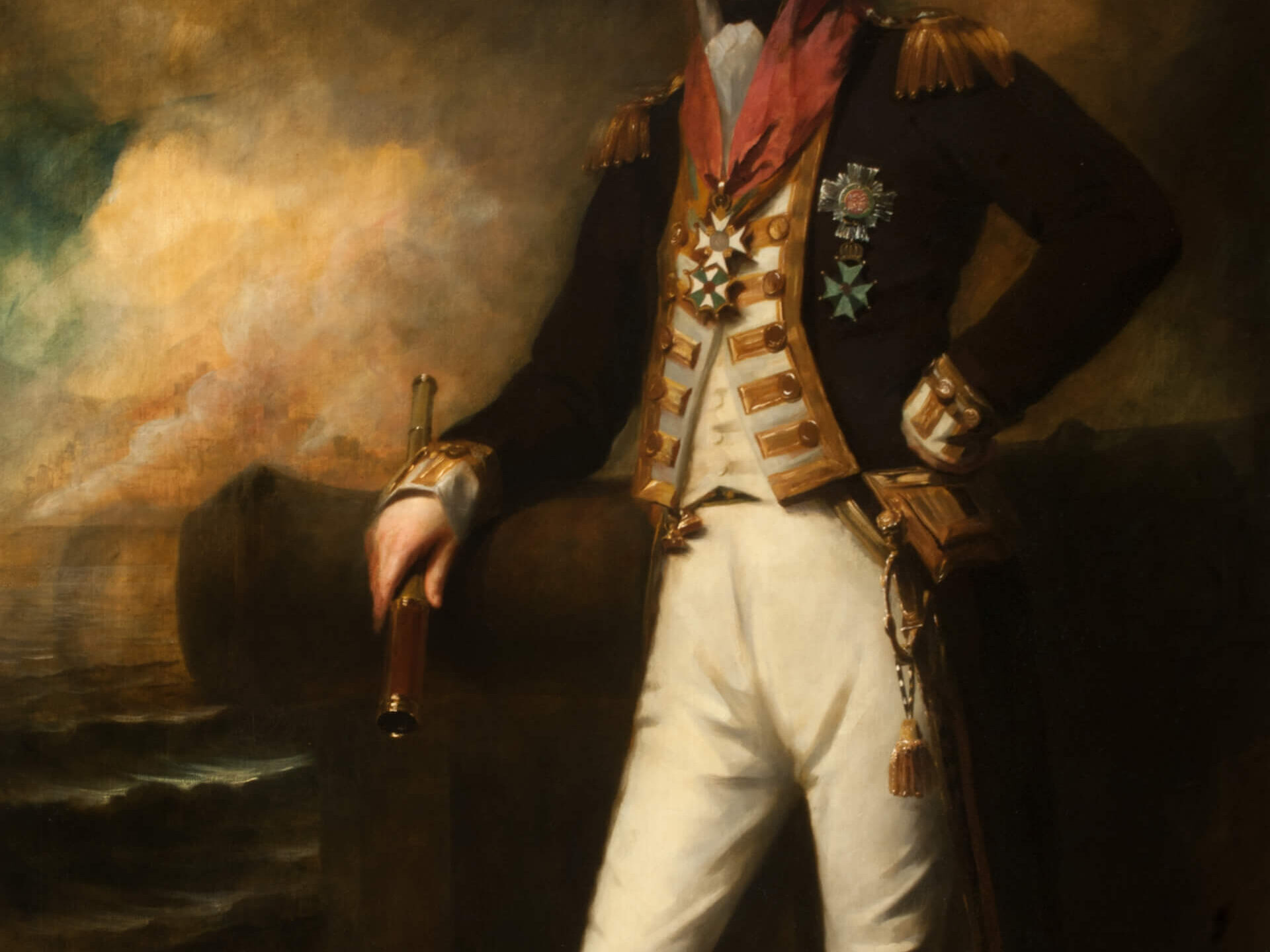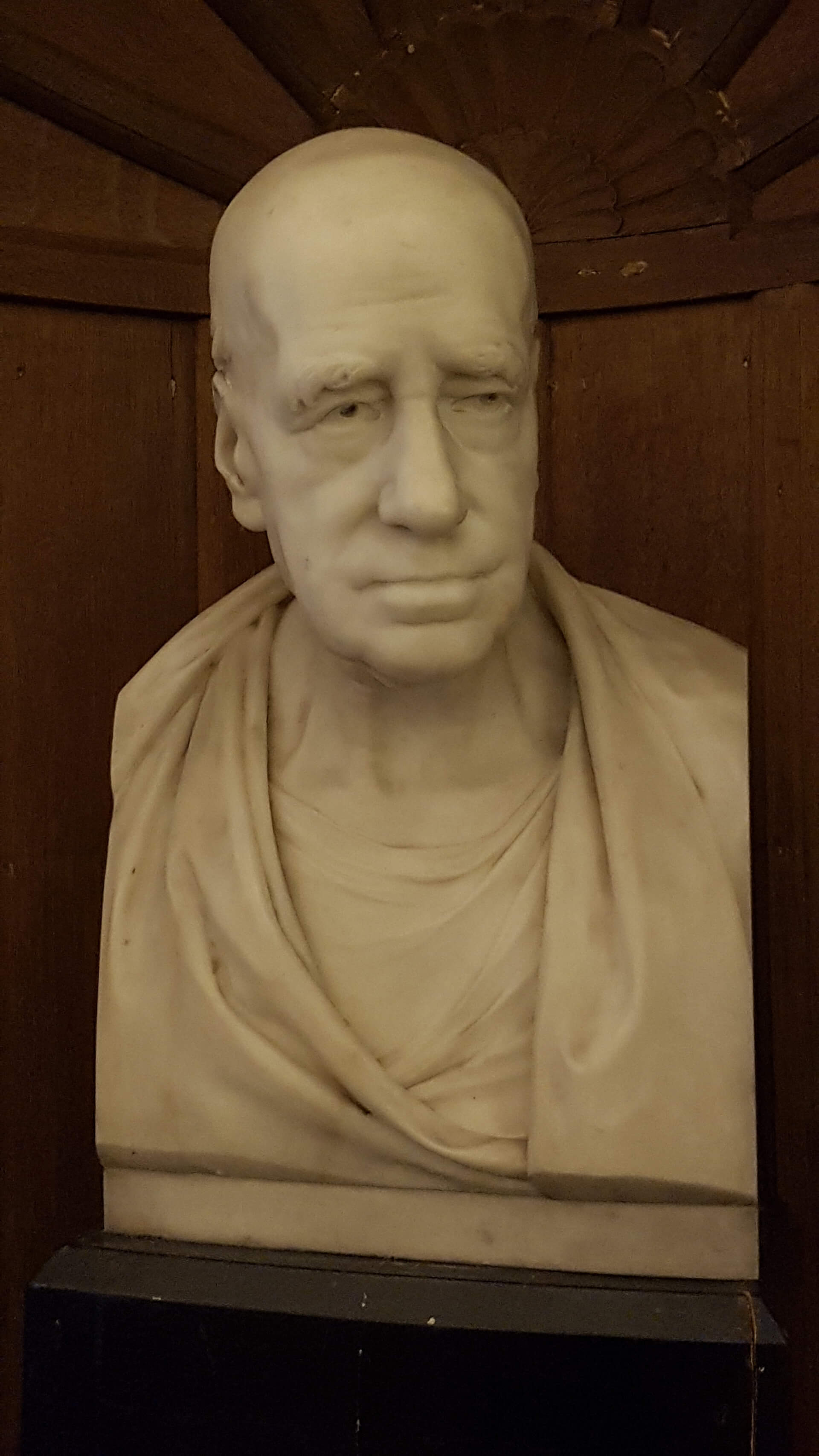Admiral Sir David Milne (1763-1845)
Description
Admiral Sir David Milne, born in Musselburgh, East Lothian, was involved with slavery through his employment in the British Navy. As a young sailor he served in the West Indies (1779-83) during the American War of Independence. He served again in the West Indies (1797-99) protecting British interests including British slave traders.
In the mid-late 1790s, as commander, he played a role in capturing Dutch colonies in South America, which later became British Guyana. He fought against the French over control of Saint Dominique, later Haiti, the first country to become an independent Black republic through an uprising of the enslaved.
In 1816, he had a prominent role in the Battle of Algiers, which stopped the enslavement of Europeans by the Barbary corsairs.
Finally, as the Royal Navy’s commander of the North American station after the abolition of the slave trade, he organised the interception of slave ships and the return of their victims to Africa.
Alexander Milne (1806-96)
Admiral Sir David Milne’s son, Alexander Milne, became a Captain of the North American and West India Station working with the anti-slavery patrols from 1823. He, later in his career, became Admiral of the Fleet and was knighted. In 1838, he related:
“At Havanah I counted 10 Slavers all nearly ready for sea under Portuguese colours. We cannot touch them unless they have actually slaves on board[.] The Spaniards we can seize if they have a slave deck or Irons or Mess Tubs or large Water Casks[.] Consequently they carry it on under the Flag which gives most protection[.] 40,000 Slaves are landed yearly in Cuba….
On 10th December 1837, on whilst board The Snake at Port Royal, Jamaica, Alexander Milne reported on having captured the Portuguese slave ship the Arrogante off the coast of Cuba:
“…of all the all the shocking sights I Ever beheld it beats all. The slaves were packed in like herrings… dysentery &c had broken out and on the passage 68 died and while on her voyage to Montego Bay Jamaica where I ordered her to land …..
Whilst Alexander was horrified by what he found; he also wrote: “This is a profitable business it should put into my hands about £500.” Royal Navy Captains and their crew stood to benefit when they captured illegal slave ships. They were paid for the number of people that were found. He sent a further letter from on board The Snake, off Cuba, to his brother David on 31st January 1838:
“….the “Arrogante”… has gone to Sierra Leone to be condemned[.] Her Capt & 30 of her crew have gone in her[.] Capt Fraser took a Prize with 130 slaves & Brig Portuguese [sic][.] She would have gone to the same place if sea worthy but is condemned[.] The officers & men have gone over in Arrogante. I hope to get her (the Arrogante) back with the men & sell her here if the Commission will allow… “
“She was in a most wretched state–I could not have believed it–with 406 slaves on board 100 men in Irons. None but the children had been on deck since leaving the Coast[.] They were all actual skeletons with death in their countenances[.] When I went on board, I was shocked[.] Dead children lying about the deck–others just in the last stage, all calling for food & water & pointing to their mouths. The weather was cold & wet and not a stitch of clothes on & blowing hard[.] With all the assistance we could render & all the attention we could pay with an Asst Surgeon I sent on board of her, 74 died between the 23rd November & 2nd Dec: They had nothing but rice to eat & were in that state that they refused food. 17 had died in Irons one night, the vessel battened down from bad weather Two of the slaves spoke English as they belonged to Sierra Leone It was a most awful picture of slave dealing I ever beheld or ever wish to see…”




